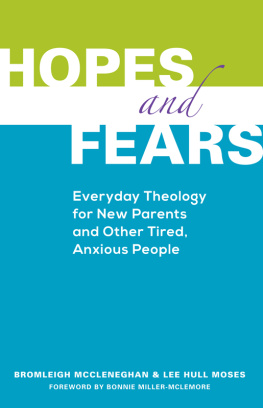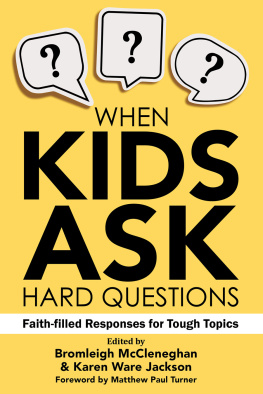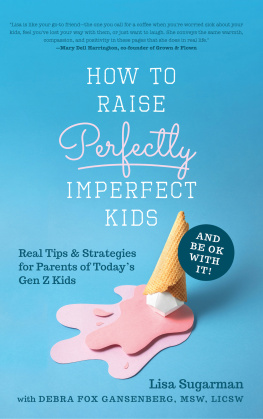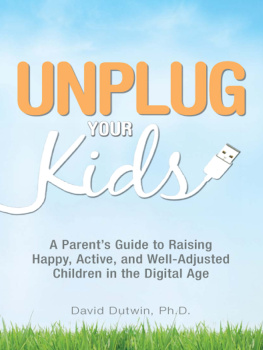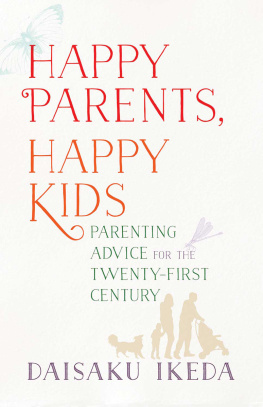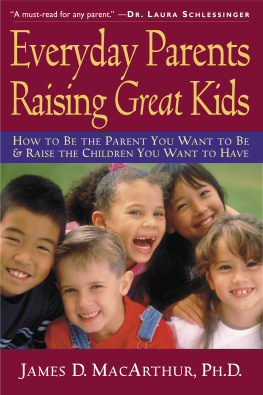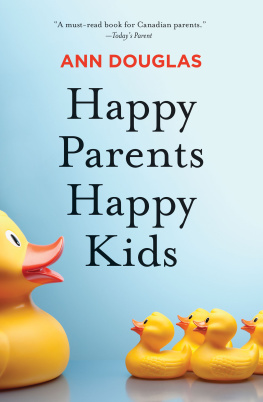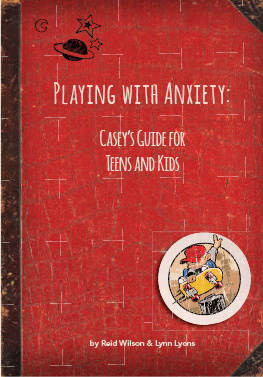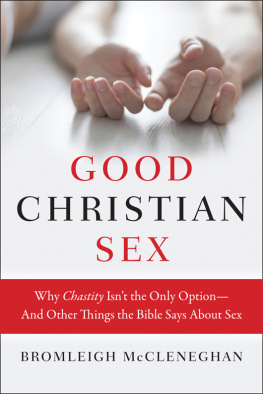Hopes and Fears
Everyday Theology for New Parents and Other Tired, Anxious People
Bromleigh McCleneghan and Lee Hull Moses
The Alban Institute
Herndon, Virginia
Copyright 2012 by the Alban Institute. All right Reserved. This material may not be photocopied or reproduced in any way without written permission. Go to www.alban.org/permissions.asp or write to the address below.
The Alban Institute
2121 Cooperative Way, Suite 100
Herndon, VA 20171
All Scripture quotations are from the New Revised Standard Version of the Bible, copyright 1989, Division of Christian Education of the National Council of the Churches of Christ in the United States of America, and are used by permission.
Library of Congress Cataloging-in-Publication Data
McCleneghan, Bromleigh.
Hopes and fears : everyday theology for new parents and other tired, anxious people / Bromleigh McCleneghan and Lee Hull Moses.
p. cm.
Includes bibliographical references.
ISBN 978-1-56699-431-6
1. Parents--Religious life. 2. Parenting--Religious aspects--Christianity. 3. Child rearing--Religious aspects--Christianity. I. Moses, Lee Hull. II. Title.
BV4529.M375 2012
248.845--dc23
2012029491
To Fiona and Harper, who started it all, and to Calliope and Jonathan, who came along at just the right time.
Contents
On friendships, and babies, and telling the truth
On if, and when, and the will of God
On pregnancy, and anxiety, and hope
On names, and identity, and making a place in the world
On Ferber, and freedom, and faith
On rest, and work, and getting things done
On intimacy, and being human, and assorted bodily fluids
On stories, and songs, and nurturing faith
On authority, and experts, and looking for truth
On gratitude, and justice, and living in a broken world
On marriage, and anger, and the nature of love
On blessings, and festivals, and ordinary time
On boys, and girls, and Galatians 3
On sharing, and life in a family, and
making room without getting crowded out
On vocation, and praise, and becoming who we are
On change, and the passage of time,
and the assurance of grace
Kincaid, the young narrator in The Brothers K, didnt realize the power of his dads table grace until Papa Chance vacated the house to spend dinnertime in his homemade baseball shed perfecting his pitching. His three-and-a half-second masterpieceGiveusgratefulheartsourFatherandmakeusevermindfuloftheneeedsofothersthroughChristourLordAmenwas the indispensible block, the rustic but reliable footbridge that led the family over a crevasse of conflict into a shared meal. Learned from his own father (and The Book of Common Prayer) and uttered in lightning speed with the demeanor of a bashful auctioneer more than supplicant, it left no opening for clowning, fidgeting, genuflecting, or apostatizing, appeasing both the atheistic belligerence of an older brother and the pushy piety of Mama Chance. And it pretty much covered the basics of faithful living.
Hopes and Fears is chock full of such building blocks and footbridges. In beautifully candid prose, Bromleigh McCleneghan and Lee Hull Moses depict the rich but mundane moments that hold families togetheror have the power to tear them apart. Indeed, honesty about the tensions and hardships, the personal foibles and gaffes is one of the most appealing qualities of this book. The deep friendship between Bromleigh and LeeI use their given names here because they speak with us on such a first name basisis key to making this book work. They have been open with each other (even if Bromleigh initially hid her first pregnancy for all sorts of understandable reasons) and they share this intimacy with readers. You feel as if you are there in the bed or kitchen or car with children crying, vomiting, crowding you out, and of course, cuddling, smiling, and spouting wisdoms to break your heart.
Bromleigh and Lee take turns writing chapters, first one, then the other, but they stand united in grappling with the dilemmas that face partners whose love leads to the conception of children. Their lives have been so closely intertwined since the pursuit of ministerial education together that their first children were born within a week of one another. By now, they live miles apart and only see each other on visits scheduled around busy lives as married couples with jobs. But one feels their connection and conversation as they try to answer fundamental questions about the abundant life in Christ, now framed, as the book itself, by the birth of four children between them.
Writing in a blogging style of personal memoir, Bromleigh and Lee name challenges with which most middle-class parents will immediately identify. Books on how to parent abound for just this educated elite and some of this burgeoning literature makes its way into their footnotes. Yet few authors recognize as Bromleigh and Lee do how the plethora of middle-class resourceshome pregnancy tests, prenatal care, ultrasound, breast pumps, baby books, parenting best-sellers, kid birthday extravaganzasoffer choices unheard of among the worlds less advantaged and yet also trouble and distort their lives. They question the privileges that narrow their compassion and the cultural lies that lead parents to seek perfection, encourage competition over cooperation, and buy the Disney Princess line.
This book also stands out for its pastoral and theological wisdom. Although the focus is on the home and not the parish, Bromleigh and Lee are both congregational ministers. Being a pastor is a wonderful calling, for a lot of reasons, Bromleigh remarks early on. One of those reasons isa growing familiarity with Scripture and the hymns of the church over the years of doing this work, a familiarity that increasingly allows me to engage with the ancient stories of faith and to hear echoes of my own story within them. This engagement echoes throughout the book. They want readers to know that parenting is profoundly theological and faith-laden. In a later chapter, Lee tells us she began to memorize hymns and sing them as lullabies when walking a fussy baby. This itself is just one example of helpful practices this book inspires. Memorize hymns, sing them as lullabies. Bromleigh and Lee show how theology happens in just this way, in our very midst as we name our children, work out who washes diapers, deal with anger, and move over to make room for new family members. Granted, Christianity and other religions are ambiguous. They cause real strife and harm. But they also foster gratitude and grace, two of the most essential ingredients for healthy family life that percolate throughout this book. With intellectual savvy and a progressive approach, Bromleigh and Lee engage scripture and theology anew, showing how the Psalms or creation stories or mandates about womens roles might be reinterpreted to empower parents and children and uphold shared love and domestic justice.
Kincaid never thought about his dads dinner grace. He had scarcely listened to it, really until the prayer was gone and all hell broke loose. Sometimes we dont notice the ordinary practices that shape family life. But how we structure our coming in and going out, our rising up and falling asleep, our bedrooms and dinner tables and laundry rooms matters. In such mundane details and decisions, our basic convictions lie. Small practicesa prayer before eating, a goodnight ritual, a kiss at the doorform us even more than we dare imagine. So an anemic little grace becomes a linchpin of family faith. Noticed or not, seemingly anemic words and deeds add grace to our lives.
With a grace all their own, Bromleigh and Lee help us stand up and take notice of Gods activity in our midst. From the very beginning of a love relationship to the scary potential of birthing a child to the messy diaper changing and crowded noisy joy of a shared bedroom, they cover the basics of faithful Christian living: grateful hearts for all our blessings and compassion for the needs of others, children and adults alike. Renewed gratitude and a return to compassion for those with whom we live most closelythese two practices alone seem more than sufficient for a faithful family life.
Next page
